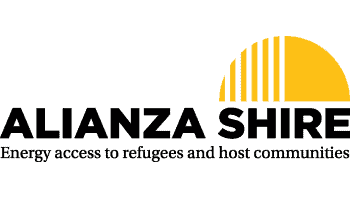Comprehensive approach for electricity and clean cooking access through solar photovoltaic mini grids: The Kobe refugee camp case study
This academic paper, written by members of Alianza Shire and energy access experts, discusses the integration of energy demand from electric pressure cookers (EPCs) into photovoltaic mini-grids (PVMGs) in order to address kitchen electricity needs in displacement situations and their long-term sustainability.
The research is based on the recognition that the e-cooking literature lacks case studies on the integrated approach to energy and clean cooking for community infrastructure in displacement settlements.
This case study of Kobe Refugee Camp fills this gap by assessing the benefits and challenges of integrating e-cooking in displacement settings, with a particular focus on access levels, costs and environmental impacts. The study shows that the integration of high-efficiency electric cookers, while increasing the initial investment, has a minimal impact on the levelised cost of energy and is economically and environmentally beneficial compared to the situation with traditional wood-burning cookers, with a high potential for scalability to other refugee camps in the context. Other benefits include the reduction of deforestation and resource conflicts between refugees and host communities.
While the findings may not be universally applicable, the falling costs of lithium-ion batteries and solar PV, and the increasing reliability and quality of solar PV technology, coupled with rising biomass fuel prices, make electric cooking a cost-effective alternative, particularly in displacement settings.
This study provides a valuable resource for energy professionals and policy makers supporting integrated e-cooking and electricity solutions. It addresses climate, energy and development challenges in the humanitarian sector, while contributing to SDGs 7 and 13.











